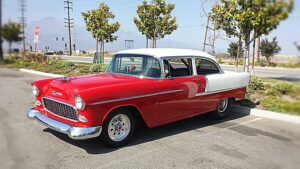Introduction
If your car is damaged in a car wash, it can be a frustrating experience. Car washes are supposed to clean and maintain your vehicle, not cause damage. However, accidents can happen, and it’s important to know what to do if your car suffers any damage while in a car wash.
Types of Car Washes
There are different types of car washes, and the potential for damage can vary depending on the type you choose. Understanding the different options can help you assess the risk involved.
Automatic Car Washes: Automatic car washes are the most common type and typically involve machines and brushes that clean your car. While they are generally safe, there is a small risk of damage, especially if your vehicle has any protruding accessories or modifications.
Tunnel Car Washes: Tunnel car washes are similar to automatic car washes but often have a conveyor system that moves your car through the cleaning process. This can reduce the risk of damage caused by human error but may still pose a risk if there are any malfunctions or if your vehicle is not properly aligned on the conveyor.
Touchless Car Washes: Touchless car washes use high-pressure water and detergents to clean your vehicle without any physical contact. While they minimize the risk of damage caused by brushes or machines, they may not be as effective at removing stubborn dirt or grime.
Potential Causes of Damage
There are several potential causes of damage that can occur in a car wash:
Brushes and Machines: In automatic and tunnel car washes, the brushes and machines used to clean your car can sometimes cause scratches or other damage, especially if they are old or not properly maintained. This is more likely to happen if your vehicle has sensitive paintwork or if the brushes are too abrasive.
Chemicals: Car wash detergents and cleaning agents can sometimes cause damage to your vehicle’s paint or other surfaces if they are too harsh or not properly diluted. This can result in discoloration, fading, or even corrosion if left untreated.
Human Error: Car wash attendants are responsible for guiding your vehicle through the car wash process. If they make a mistake or are not paying attention, they may accidentally cause damage to your car, such as hitting it with a brush or not properly aligning it on the conveyor.
What to Do If Your Car Is Damaged
If you notice any damage to your car after a car wash, it’s important to take the following steps:
Document the Damage: Take photos or videos of the damage as soon as you notice it. This will serve as evidence if you need to file a claim with the car wash or your insurance company.
Notify the Car Wash: Speak to the car wash manager or attendant immediately and inform them of the damage. They may have a process in place for handling such incidents and may offer to repair the damage or compensate you in some way.
Contact Your Insurance Company: If the car wash is unable or unwilling to resolve the issue, contact your insurance company to report the damage. They will guide you through the claims process and help determine if the damage is covered under your policy.
Conclusion
While car washes are generally safe, there is always a risk of damage. Understanding the different types of car washes and the potential causes of damage can help you assess the risk and take appropriate action if your car is damaged. Remember to document the damage, notify the car wash, and contact your insurance company if necessary.
References
– carwash.com
– consumerreports.org
– carsdirect.com













